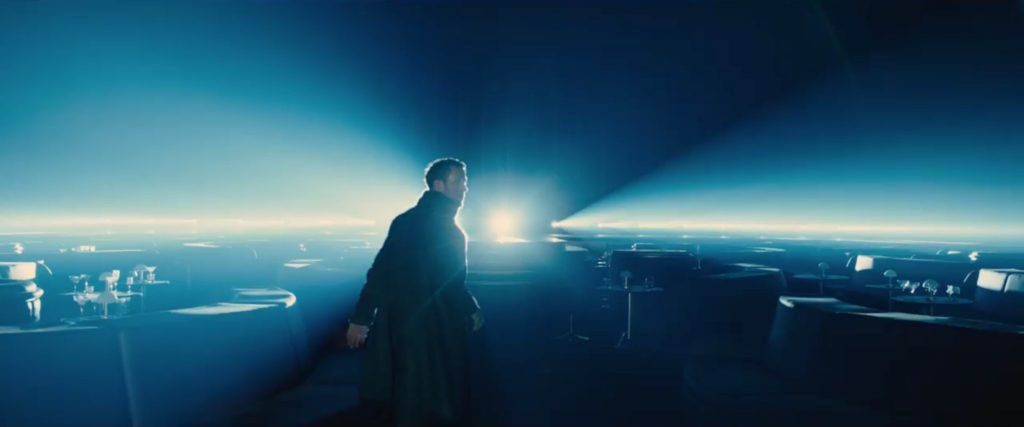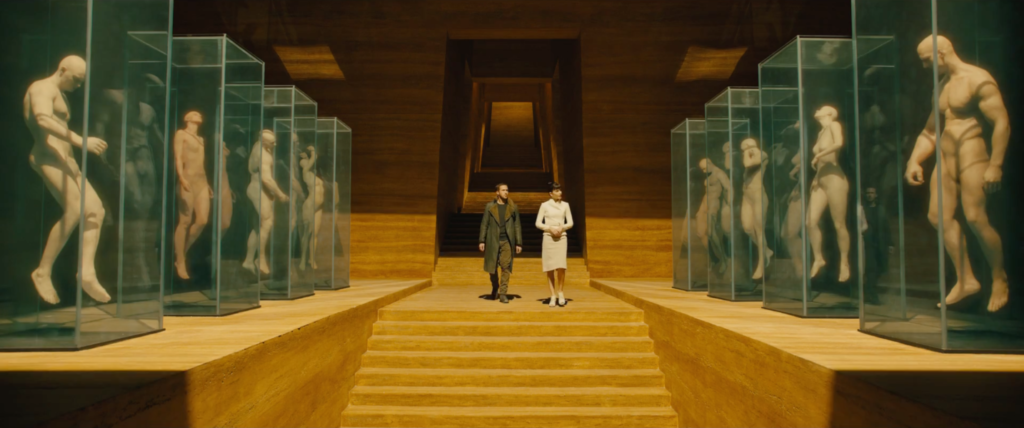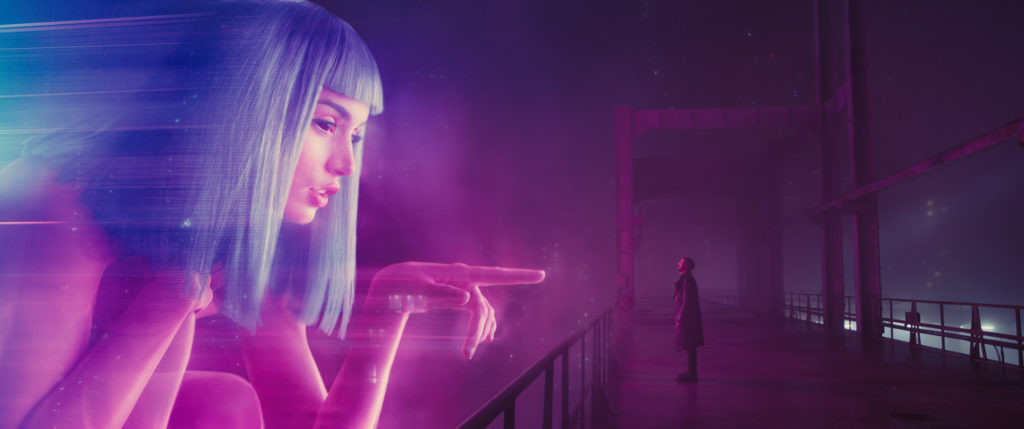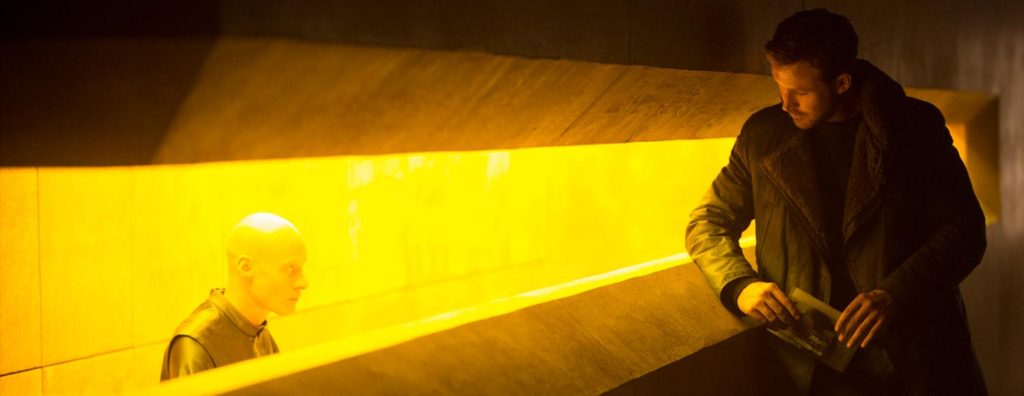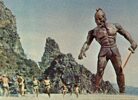I’m not keen on attacking other writers, and indeed, this should not be construed as an attach. Still, I can’t help but vent a little frustration at this piece from the Guardian, Has Blade Runner 2049’s failure killed off the smart sci-fi blockbuster?
The writer (who I’m sure is a terrific guy) has great praise for Denis Villeneuve’s unexpectedly astonishing sequel to Ridley Scott’s 1982 science fiction cult classic, Blade Runner. I agree with him wholeheartedly about that. This was a visually stunning, thematically rich modern masterpiece of the genre, one that had me talking about it and chewing it on for days after, exactly as great speculative fiction/science fiction should. I expected nothing from it, in fact openly said they shouldn’t even make it when it was first announced, and I was wrong, wrong, wrong. The film was fantastic.
I’m also on board with the idea of lamenting anything that will do damage to getting good SF into theaters.I make it a point to support these films with my money because for me, the heart of the genre is in questions about the human condition, not spaceships and lasers. I love space adventure as much as the next geek — I’m a lifelong Star Wars fan, natch — but my real love is for films like Gattaca, Children of Men, Arrival, and other works that pose questions about humanity and our place in the world. If Blade Runner 2049’s box office failure means fewer films like this, that would be a great loss.
So why do I have a problem with this piece?
Because it poses a series of questions that undermine all the things that make Blade Runner 2049 and other “smart” science fiction films “smart” in the first place.
The writer says that “the Canadian film-maker chose to plunge so far down the futuristic rabbit hole without revealing enough of this mesmerising sci-fi wonderland’s darkest secrets.” There could have been sequels, he says, that dealt with those secrets. He then offers a series of questions to illustrate what such sequels would explore.
And that’s when I wanted to print out the article just so I could ball up the paper and toss it in the trash. Let’s look at the questions he writes about one by one. The material in bold are direct quotes from the piece. Oh, and SPOILER WARNING for Blade Runner 2049:
After almost three breathless hours of pulsating dystopian thrills, we are no closer to filling in many of the gaps in Ridley Scott’s original 1982 dystopian masterwork. Is Harrison Ford’s Rick Deckard a replicant?
It doesn’t matter, and more importantly, answering the question would undermine half the point. We’re supposed to question whether there is any fundamental difference between human and replicant; what truly makes us human; what would set us apart from a being that looked, felt, and acted just like us. Questions like this are common in sci-fi, asking us to explore what makes us tick and also serving as analogs for issues like race relations and the class divide. Leaving the question of Deckard open is key to driving that philosophical question. Giving a definitive answer here would be the wrong choice. The whole point is to blur the lines between human and replicant. The real answer doesn’t matter. What matters is the question. That’s why they smartly sent mixed signals. To maintain that blur.
What do the off-world colonies look like?
It doesn’t matter. In fact, it’s better not to know. In the Blade Runner universe, we know Earth is in shambles. People there are crowded and miserable. It’s a poison world filled with poison people. The off-world colonies should serve as an almost mythical place the people on Earth want to escape to. That sort of thing is better left to our imagination. You show them, and suddenly those colonies are just another set of sci-fi cities instead of that alluring, unknown something the characters hope to one day reach. It’d be like showing the Undying Lands in Lord of the Rings, or Heaven in just about any other story. These are things better left as unrealized wishes.
Are androids the next stage in human evolution, or merely useful gifts for the 21st-century sociopath who has everything?
This is the fundamental question of the series. You don’t answer that question! You introduce the question to the audience and prompt them to think about it. You present this ambiguous morality play and allow audiences to consider the questions you’re posing. If you just hand them an answer, it’s no longer the smart sci-fi you claim to want!
What’s more, we suddenly have dozens of new puzzles to solve. Is Carla Juri’s Dr Ana Stelline Deckard’s biological daughter, and can she ever leave that giant glass dome?
These questions can only have come from not paying attention, because the answer is clear “yes” to both. We know she’s Deckard’s daughter, that’s abundantly clear, and yes, she can leave the dome, she’s simply been placed there to hide and protect her. It essentially puts her off the grid and beyond suspicion. Whether she knows that is an open question — it’s not clear whether or not she knows the truth about herself — but it’s not a question that needs answering.
Who will win the battle for control over the first naturally born replicant – Jared Leto’s Niander Wallace, or Hiam Abbass’s one-eyed robo-insurgent Freysa?
It doesn’t matter. Blade Runner is not Star Wars. It’s not a battle between factions, it’s a meditation on humanity, truth, free will, and other higher concepts. I can’t imagine anyone actually cares about seeing this resolved, since it’s so far removed from the point of the film.
Will Deckard and Ana ever restore their father-daughter bond, given he abandoned her to that awful orphanage as a small child?
Honestly, who cares? Ending the movie on the note they did was ideal; you don’t need another story to explain that Deckard went to lunch with his daughter and they had a nice chat and then she cried and then they had a nice father/daughter moment. Their relationship doesn’t matter. Those characters are effectively MacGuffins. They exist to help pose the questions the film seeks to pose.
Villeneuve and screenwriters Hampton Fancher and Michael Green might well have been hoping to answer all these questions in future instalments.
Hopefully they’re smarter than that. Based on the film, I’d say they are.
And thank goodness for that. Blade Runner 2049’s strength comes in no small part through its willingness to trust the audience, and just as importantly, to demand of the audience.
Because that’s what good science/speculative fiction does. It asks us to think. To question. To ponder. And answering the above questions completely kicks the legs out from that.
(For some good brain fodder, go check out Geek Wisdom, a book I was proud to contribute to.)

